Here’s a quick question for you:
Did you really pay attention to the last presentation you sat through?
Sure, you remember some slides, graphs with financial forecasts, and bullet points. But at some point, you zoned out.
What makes presentations so dull is that they’re made using the same Microsoft PowerPoint templates everyone else is using. Every presentation looks the same.
Don’t get us wrong. PowerPoint is a fantastic tool and a pioneer in presentation software for a reason.
But if we don’t know how to use it to its full potential, we’ll likely end up with a cookie-cutter slide deck.
Creating a presentation is more than just piecing together text and visuals.
Every slide should have an impact on the audience or reader, so it’s important to be mindful of their visual design. Color, for example, influences up to 90% of a person’s snap judgment about a product.
There are many PowerPoint alternatives with better templates that can punch up your next presentation.
To make things easier for you, we’ve listed down seven great PowerPoint alternatives, complete with an overview of their features and individual pros and cons.
You can also click on the links below to go straight to each presentation software on this list.
Alternative presentation software
1. Piktochart
- Wide selection of professional-quality templates
- Newbie-friendly video tutorials and a blog with design resources
- Robust features for free users, with more available for Pro users
- Collaboration features for teams
Piktochart is a web-based design application that lets you create professional-looking infographics, posters, reports, flyers, social media graphics, and presentations using a simple drag-and-drop interface.
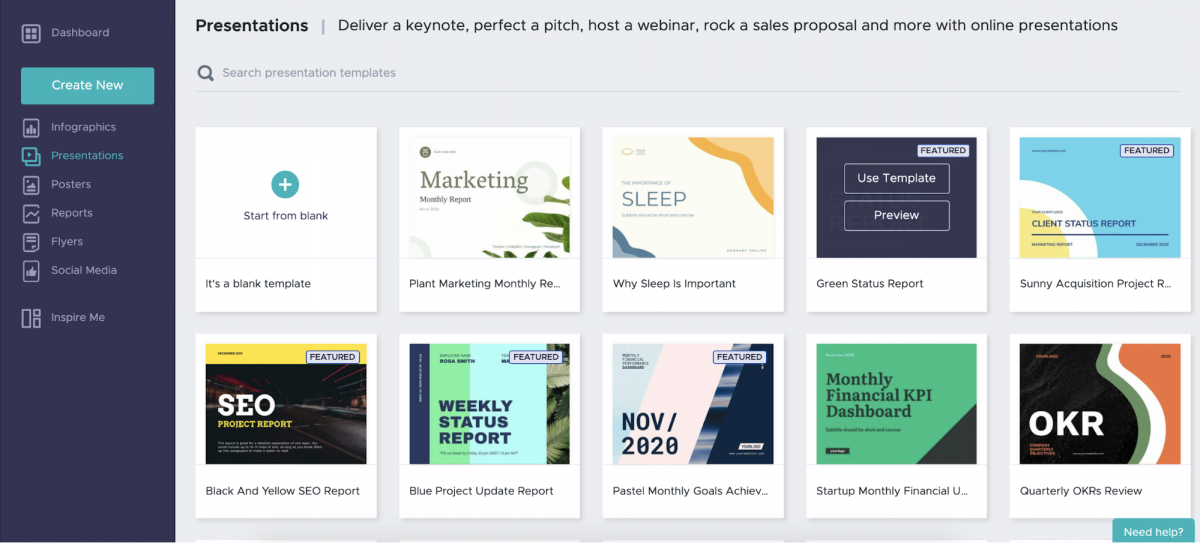
Piktochart pros
Like PowerPoint, Piktochart offers a wide range of templates for themes and topics like marketing and sales, financial forecasts and performance, investor pitches, and more.
For new users or those who want to design presentations from scratch, check out the platform’s Help Center, Video Tutorials, and Blog, all of which offer a wealth of resources on Piktochart and general design topics.
Free users will have access to plenty of design features, but more can be unlocked if you get a paid plan.
Annual fees start at $290/year ($24.17/month) for Pro and $990/year ($82.50/month) for Pro Teams with five members.
The Pro Team plan allows teams to work on shared presentations and consolidate projects.
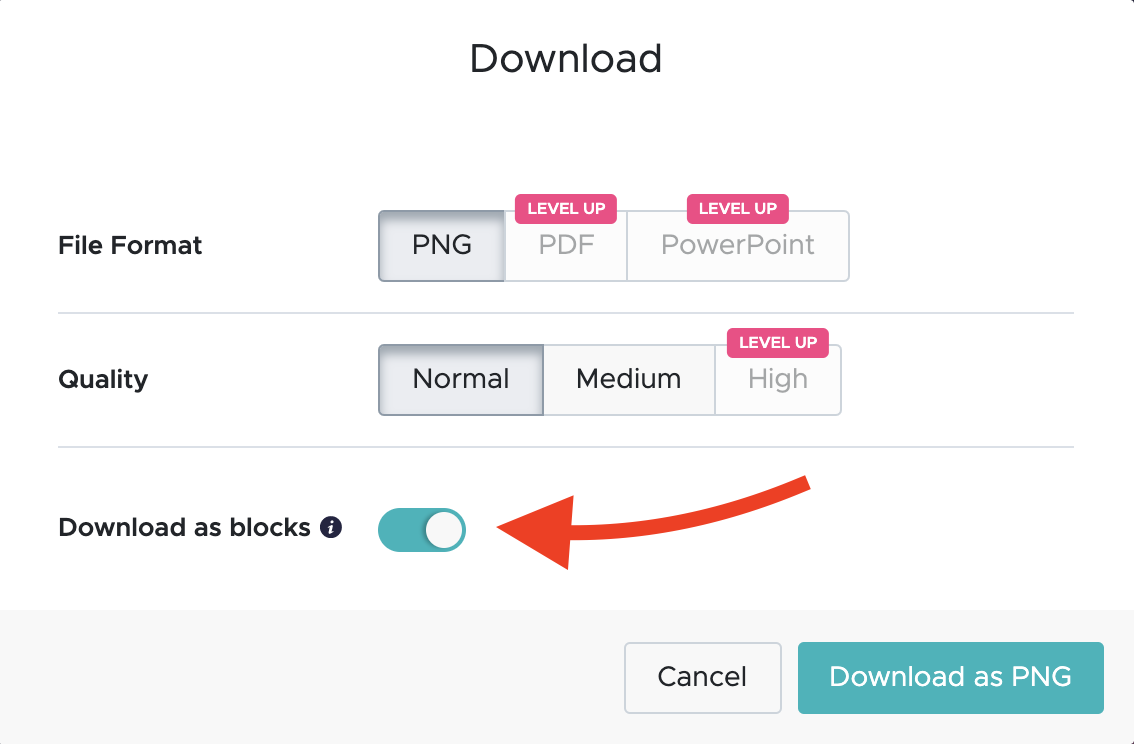
Finally, presentations can be downloaded as high-resolution files, powerpoint files, or presented straight from the platform.
You can also design an infographic and download it in blocks to convert into presentation slides or other graphic formats.
Piktochart cons
Unfortunately, Piktochart does not support native video playback on presentations, which rules out interactive presentations.
You can, however, embed videos from Vimeo and YouTube into your presentation, share to publish it, and copy and paste the URL on a browser to view the visual.
You could get started right away with Piktochart by signing up for free.
2. Google Slides
- Great for users already deep in Google’s online ecosystem (e.g., Google Docs, Google Sheets, Google Drive)
- Free for all personal users, and accessible to enterprises through G Suite
- Accessible on browsers and mobile devices
- Supports presentations through Chromecast and AirPlay

Google Slides is a presentation platform that’s part of Google’s web-based office suite within Google Drive.
It lets you create and present pitch decks, training modules, and project presentations among others right in your browser, with no need to install any software.
Google Slides pros
Google Slides is great if you’re already invested in other Google tools like Docs, Forms, and Sheets.
It’s also arguably the most accessible. Not only is it free to use for all personal users (enterprises can unlock more features through G Suite), but it’s also available on both browsers and mobile devices.
Slides’ integration with Google Drive, Docs, and Sheets means that importing audio and video files, managing presentations, and collaborating on projects with teams is a breeze.
Google Slides cons
One of the downsides of Google Slides being widely accessible to users of all skill levels is that you don’t get more advanced features and design tools found on other platforms.
For example, Google Slides has a decent selection of templates for common types of projects and presentations, but it’s nowhere near the variety you’ll find on the other platforms on this list.

Bottom line? Google Slides is great for basic presentations.
But if you want more advanced features like transitions and effects, it’s best to look for something else.
3. Beautiful.ai
- Uses AI to recommend visual elements and layouts on your slides based on design principles
- Simple and user-friendly design tool makes it easy for newbies to create beautiful presentations in minutes
- Wide selection of presentation and slide templates
As its name suggests, Beautiful.ai is a presentation platform that leverages artificial intelligence to suggest ways to visualize your ideas and customize your designs.
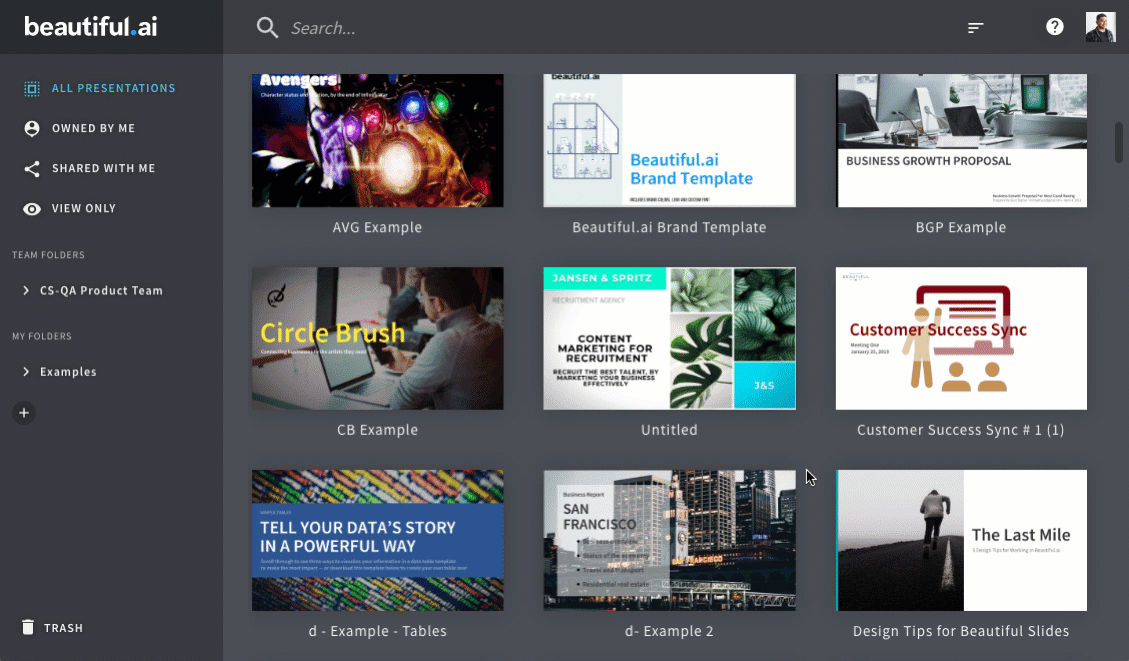
Beautiful.ai pros
Beautiful.ai’s technology is the driving force behind its Smart Slides feature.
Smart Slides ‘understand’ the content on your slide. From there, it intuitively makes recommendations on what elements you may want to add later and how you may want your slide layout to appear.

For novice users with little to no design experience, this process happens automatically, with Beautiful.ai organizing ideas and visualizing content quickly — all while providing guidance every step of the way.
Free users have more than 60 presentations to choose from, with the option of unlocking more on the Pro plan for $12/month and $15/month, billed annually and monthly, respectively.
Beautiful.ai cons
Beautiful.ai is exclusively a presentation tool, which can be disappointing if you want to use it to create other visual projects like posters and infographics.
Its Smart Slides also have set parameters that leave little for customization.
Users can only move elements to specific spots on each slide, which means you can’t make the overall design of your presentation your own.
4. Apple Keynote
- Comes built-in with Apple macOS and available for free on iOS
- Tight integration with other Apple apps makes it a natural choice for Mac users
- Compatible with PowerPoint
- Better transitions and effects than PowerPoint
Keynote is Apple’s presentation software that comes included with any purchase of an Apple laptop and desktop computer.
It’s part of the Apple iWork productivity suite, alongside Pages and Numbers.

Keynote pros
Keynote’s tight integration with other Apple apps also makes it a natural choice for Mac users.
If you’re already familiar with Pages and Numbers, you’ll feel right at home with Keynote’s three-panel interface, composed of a formatting panel on the right side, a large editing section in the middle, and thumbnails on the left side.
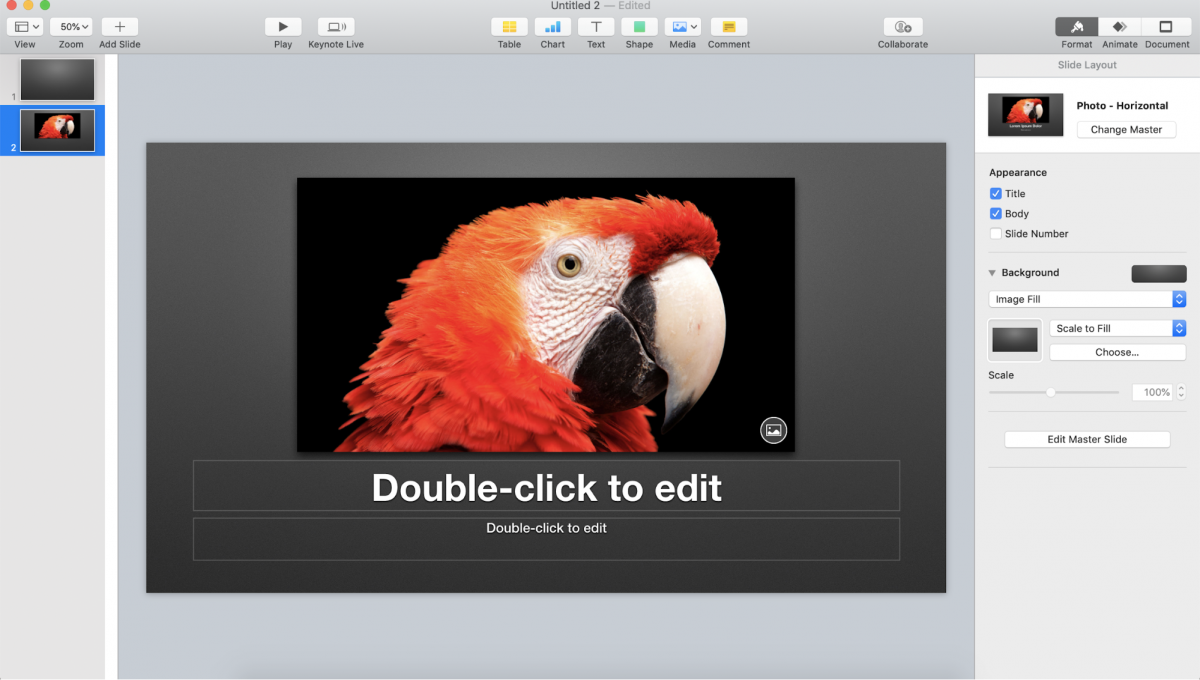
But what makes Keynote one of the popular PowerPoint alternatives are its transitions and effects.
In particular, the software’s impressive Magic Move transition allows visual objects to smoothly move positions from one slide to another when playing your presentation.
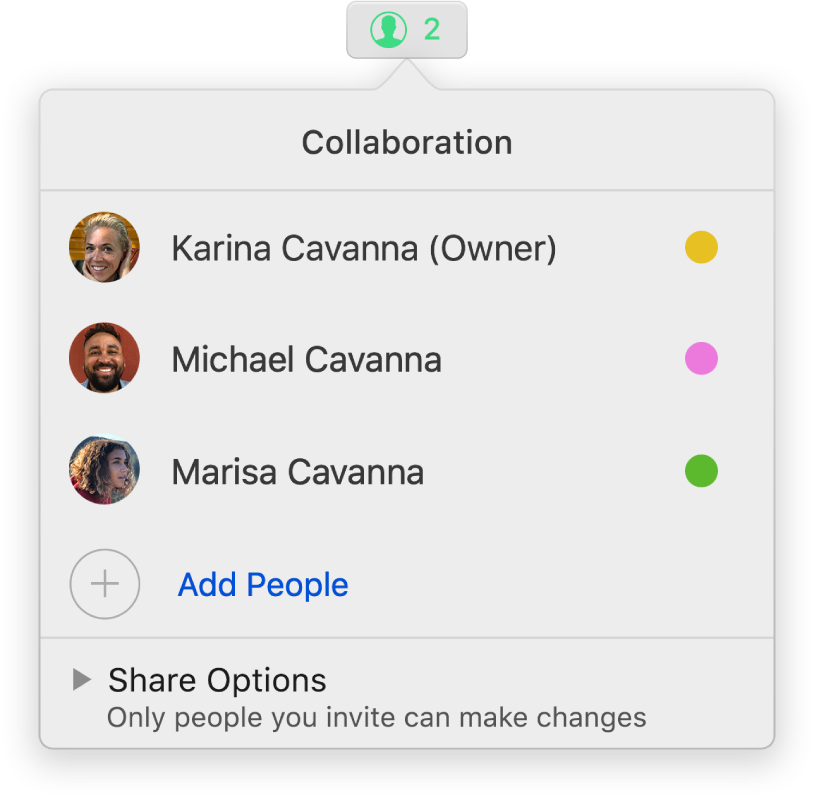
Keynote users can also collaborate on presentations in real-time. Additionally, you can place restrictions on who can edit and only view your presentation.
Keynote cons
PowerPoint and Keynote are generally compatible, provided Keynote presentations are exported in .ppt or .pptx format.
However, elements like transitions, layouts, and fonts may look off if you’re exporting from Keynote to PowerPoint.
5. LibreOffice Impress
- Entire LibreOffice suite is open-source and free
- Supports all PowerPoint formats: .pps, .ppt, .pptxx
LibreOffice gets a lot of love for being a free and open-source alternative to Microsoft Office. LibreOffice Impress is the productivity suite’s alternative to PowerPoint, offering many of the same features found in its Microsoft counterpart.
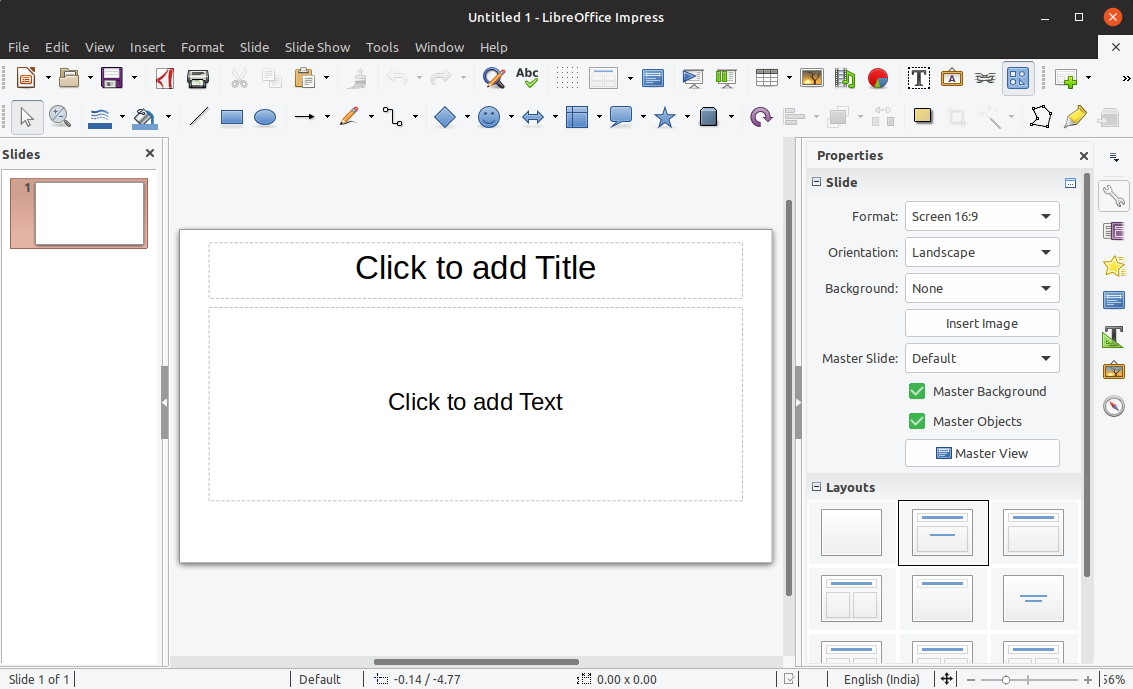
LibreOffice Impress pros
LibreOffice Impress supports all PowerPoint formats: .pps, .ppt, and .pptx.
With it, you can create all kinds of slide-based presentations using five different editing and viewing modes:
- Normal, for general editing
- Outline, for outlining text content
- Notes, for adding and editing notes attached to slides
- Handout, for paper-based materials
- Slide Sorter, for quickly finding and changing the order of slides
Impress’s UI is far from the prettiest, but it gets the job done in a no-frills way with features like animations, effects, support for audio and video files, and timed presentations.
LibreOffice Impress cons
Impress requires installation but is available on Microsoft, Mac, and Linux. The platform is also exclusive to desktops.

Impress has only 23 default templates to choose from, so we recommend looking for templates on third-party platforms like GitHub.
However, you’ll need to do some digging if you want templates that are just as good-looking as the ones found on software like Piktochart.
It’s also worth noting that even if Impress supports other presentation software, you can expect to see some formatting issues when importing and exporting presentations between platforms.
6. Zoho Show
- Ideal for users invested in Zoho Office Suite
- Free for personal use; competitive rates for enterprise users
- Promises to keep formatting and elements intact when switching to PowerPoint
Zoho Show is a web-based presentation platform that’s part of the Zoho Office productivity suite.
If you’re already using any of the Zoho office suite apps, it makes sense to create your presentations on Zoho Show.
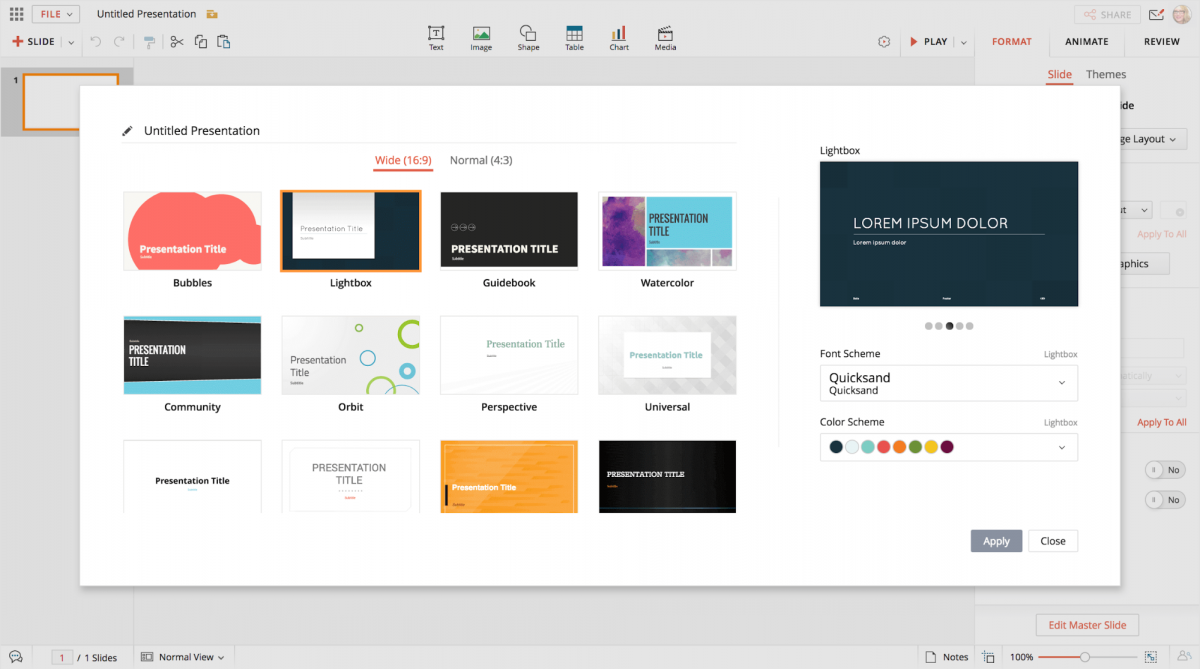
Zoho Show pros
Zoho Show’s feature set is comparable to other platforms’ capabilities.
It offers perks like real-time collaboration and editing, transitions and effects, animations, slide review and commenting, deck downloads, and online publishing, as well as online broadcasting and discussions.
Zoho Show supports file types on PowerPoint and open-source platforms like OpenOffice.
Furthermore, Zoho promises that any presentation viewed on PowerPoint will be free of issues like missing fonts, layout errors, and broken objects.
Zoho Show has more than 20 presentation themes to choose from, along with 100 fonts, animations, and charts to visualize data.

Zoho Show is free for personal users and small teams of up to five people.
You can also unlock enhanced security, more collaboration features, storage, and admin controls by moving up to the Standard and Premium plans for $4/month and US6.4/month (billed annually), respectively.
Zoho Show cons
Zoho Show does not have an offline mode; you’ll need Internet access to edit or present slide decks.
Videos and tweets on Zoho presentations can only be viewed online. At present, there’s no support for offline content.
7. Adobe Spark
- Ideal for individual users and enterprises that rely heavily on the Adobe design ecosystem
- Comes with a desktop version and mobile apps for iOS and Android
- Free to use and does not require a Creative Cloud account
Adobe Spark is a relatively new web-based design service that lets users create presentations as well as creative portfolios, landing pages, product pages and catalogs, newsletters, and photo galleries.
Adobe Spark pros
Using Adobe Spark’s built-in Presentation Maker will come naturally to you if you or your business is already familiar with other Adobe products.
But even new users with little to no graphic design experience will pick up the click-based platform in no time.
You can also use the other tools in the Adobe Spark suite, like Adobe Spark Post and Adobe Spark Video, to make specialized content to make your slides more interactive.
For example, Spark Video supports audio and video content. You can also upload content to Spark straight from third-party sources like your library, Dropbox, Google Drive, and even social channels.
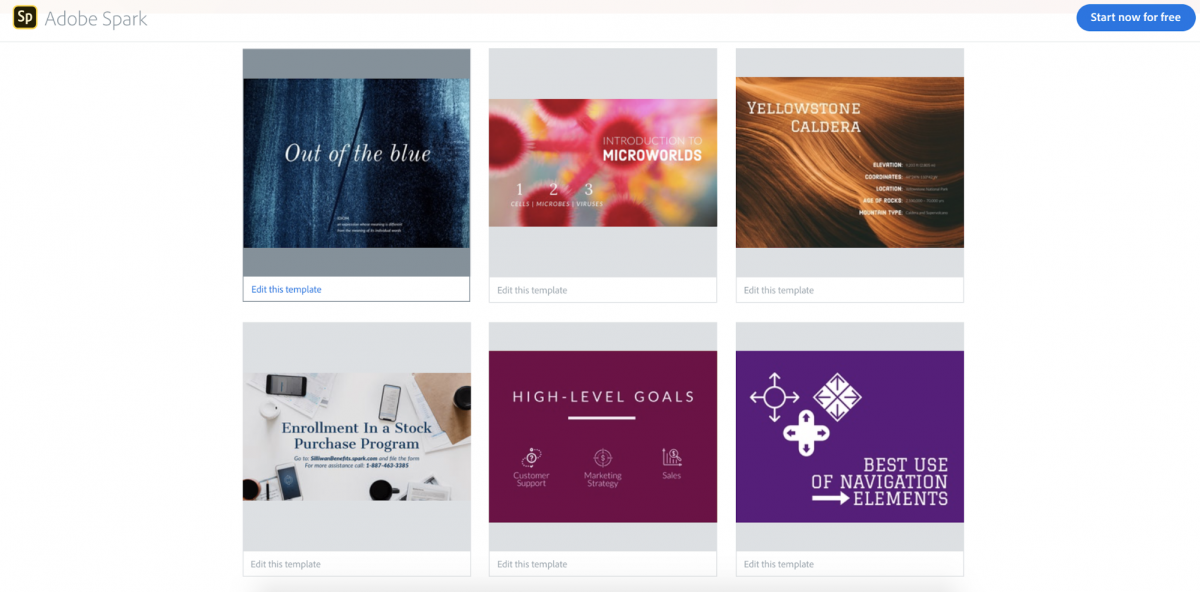
Spark offers free users a small but diverse selection of presentation templates for different projects and occasions.
Naturally, you unlock more templates and features like branding and team collaboration if you upgrade to the paid plans.
Pricing starts at $9.99/month or $99.99/year for individual users and $19.99/month or $239.88/year for teams and enterprises.
Adobe Spark cons
Free users are limited to a small selection of templates, which gets old when you need to make multiple presentations in a year.
Presentations made using free accounts will also have the Adobe watermark. Finally, Adobe Spark does not support offline editing and presentations.
What to look for in PowerPoint alternatives
Just as there are many ways to make a presentation, there are also several alternatives to PowerPoint you can go for. Some are better than others or have more features designed for your needs.
To make choosing a presentation platform easier, consider these criteria:
- Accessibility. Is it an operating system (OS)-based or browser-based platform? The former requires installation on your computer (as in the case of PowerPoint) while the latter means it can be accessed using any web browser. Each has its pros and cons, depending on your needs.
For example, OS-based platforms don’t require an Internet connection to run. On the other hand, browser-based platforms need an Internet connection but can be accessed (along with your designs) on any browser. - Usability. Is the platform easy to use or does it have a steep learning curve?
Look for software that comes with tutorials designed to help new users create beautiful presentations. The best presentation software isn’t just simple and easy to use, but it also supports additional media to make them more lively and engaging. - Notable features. Apart from the usual ability to add text, images, and graphics to slides, you want a presentation platform with extra features such as collaboration, robust design tools, support for audio and rich media, and a wide variety of templates for reports and presentations.
- Price. Finally, consider the price of the software. Some are free for personal use, others come bundled with the OS, while the rest are available to enterprises on a monthly and annual subscription.
With Piktochart, you can make visuals within minutes in various formats. With Pro, you can also collaborate with up to 24 members, upload your own fonts and get unlimited downloads. Get started by signing up for free.



